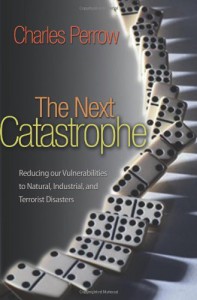 Too Tough for Most, Here is Short Version and Links, October 1, 2008
Too Tough for Most, Here is Short Version and Links, October 1, 2008
Kevin Phillips
I admire this author, very much, and consider him to be one of the more thoughtful public intelligence minutemen–sadly, the media has failed us, as have the think tanks, and we who wish to know the truth of any matter are left very much on our own.
Here is the short version of this book (ending with NO on the bail-out) courtesy of and with permission of Sterling Seagraves, co-author of GOLD WARRIORS:
Many Continental European banks ARE stronger than USA banks, because they have more experience with disaster in past centuries. As do some current EU governments like France, Spain and Germany. But they are exposed for 2 reasons: 1, they found it easy to borrow money from USA banks, so they became somewhat addicted to easy money, and are now having to adjust to that source of money drying up. 2, most big banks not long ago set up divisions in Paris (for example, SocGen, CredAgri, Paribas) that were to play the investment game of derivatives and short-selling. In the case of SocGen, this was exposed recently but blamed on only one man, a trick to protect many others. With CredAgri, all their regional commercial banks are very solid, but their newer Paris investment division is in deep shit because of emulating New York and London corrupt practices.
The basic problem is that citizens must have a secure place to put their savings. Conservative banks initially use this money to make conservative investments, but as time passes the young and ambitious “upstarts” (arrivists) begin to make crazier investments to advance their careers and enlarge their private wealth — but still speculating only with the savings of citizens who trusted their bank. Eventually, these upstarts went crazy. But they were encouraged to do so by their bosses, and then by the Reagan, Bush Sr and Bush Jr administrations. During the first year of the Bush Jr administration, it had such a terrible reputation and the US economy was in such terrible condition, that it was decided to increase “housing starts” (home construction) by giving mortgages to everyone (even if they could not pay-back) because the statistics would look good on paper. This soon became a “feeding-frenzy” by the Piranha, creating a global feeding-frenzy by almost all big banks, including UBS and CreditSuisse.
The reason none of the “authorities” sounded the alarm is because they, and the politicians, and journalists, and professors, are all tied together like black slaves on a slave ship. If one goes overboard, they ALL go overboard. So they protect themselves by protecting “the system”. The proposed 700-billion US$ bail-out was simply the final robbery by the Bush admin, shared with all the big bank owners. In fact, the ECB has given that much to banks in the last two weeks to “increase liquidity” (put money in the pockets of the malefactors), so the Bush/Paulson bail-out was just a way of feeding their personal friends.
The people who are cheated are the citizens who trusted the banks with their savings. It is better to have the criminal banks crash, because only that will provoke a serious reform. I hope we are getting closer to the time when citizens will rise up and get violent. It is very healthy for governments and politicians (and bankers) to get their asses kicked, to be put in the tumbril and sent to the guillotine. This must be done every several generations to keep them afraid, because nothing on earth will keep them honest except fear. The Bush regime postponed the guillotine by mis-directing the fear of citizens toward Muslims, and avoided a quick military coup at home by sending most soldiers to Iraq and Afghanistan where they are no danger to Washington. I may have put this very simply, but there are times when things need to be put simply.
END SHARED INFORMATION
Here are books that are easier to read and make the same case, but please note that all of this can be traced back to Senator Phil Gramm (R-TX) and his deregulation of the financial industry with a 200+ page amendment that none of the other Senators read. Clinton “went along” because “easy money” was a popularity enhancer.
The Battle for the Soul of Capitalism
The Soul of Capitalism: Opening Paths to a Moral Economy
The Shock Doctrine: The Rise of Disaster Capitalism
Confessions of an Economic Hit Man
The Manufacture of Evil: Ethics, Evolution and the Industrial System
Running on Empty: How the Democratic and Republican Parties Are Bankrupting Our Future and What Americans Can Do About It
Breach of Trust: How Washington Turns Outsiders Into Insiders
The Global Class War: How America's Bipartisan Elite Lost Our Future – and What It Will Take to Win It Back
Screwed: The Undeclared War Against the Middle Class – And What We Can Do about It (BK Currents (Paperback))
Election 2008: Lipstick on the Pig (Substance of Governance; Legitimate Grievances; Candidates on the Issues; Balanced Budget 101; Call to Arms: Fund We Not Them; Annotated Bibliography)



